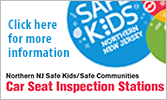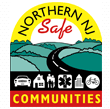Snow Sledding Safety
At Play
Practice responsible sledding, safe environment and equipment
WHAT ARE THE INJURY FACTS FOR YOUTH WHEN SLEDDING?
- Injuries commonly occur in collisions with fixed objects (e.g. trees and fences) and other people
- Sledding in an area that is open to vehicular traffic significantly increases the risk of severe injury.
- The absence of adult supervision increases the risk of injury.
- Common injuries include head trauma, fractured bones, and contusions or abrasions.
WHAT DEVELOPMENTAL FACTORS SHOULD BE CONSIDERED FOR ASSESSING A SAFE LEVEL OF SLEDDING?
- The cognitive capacity to anticipate, recognize and react to potential hazards
- The good judgment to act responsibly, minimize risk, and react to potential hazards
- The physical capability to climb hills, hold onto a sled, and regulate body temperature.
WHAT FACTORS AND STRATEGIES ARE KEY TO SAFE SLEDDING?
Personal Safety
- Adult supervision
- Limiting activity to developmental capabilities to prevent fatigue and cold exposure
- Wearing a HELMET
- Wearing appropriate clothing to protect from the cold
Safe Environment
- Area free of obstacles
- Designated up and down routes
- Motor vehicle traffic not in proximity
- Adequate snow base with no protruding objects
- Sledding incline less that 30 degrees with a long run out
- Sledding during daylight hours, or in well-lit areas at night
- Providing areas for sledding only
Sled Safety
- Sled constructed of high quality materials without sharp edges that cannot be pierced by objects on the ground
- Sled is ridden in face forward, sitting position
- Sled has controlled direction
- Sled has easily gripped handles
WHAT IS CHILD SAFETY ADVOCATED PLAY IN ADDRESSING SLEDDING SAFETY?
- Practice responsible sledding
- Evaluate current sledding opportunities for hazards
- Promote development of safe sledding environments and use of safe sleds
- Evaluate effectiveness of current prevention practices
- Monitor childhood injury reports / data
- Promote the role of parents in providing sledding safety and supervision

KJ Feury RN APN, C
karenjean.feury@atlantichealth.org
Phone: 973-971-4327
Fax: 973-290-7350




